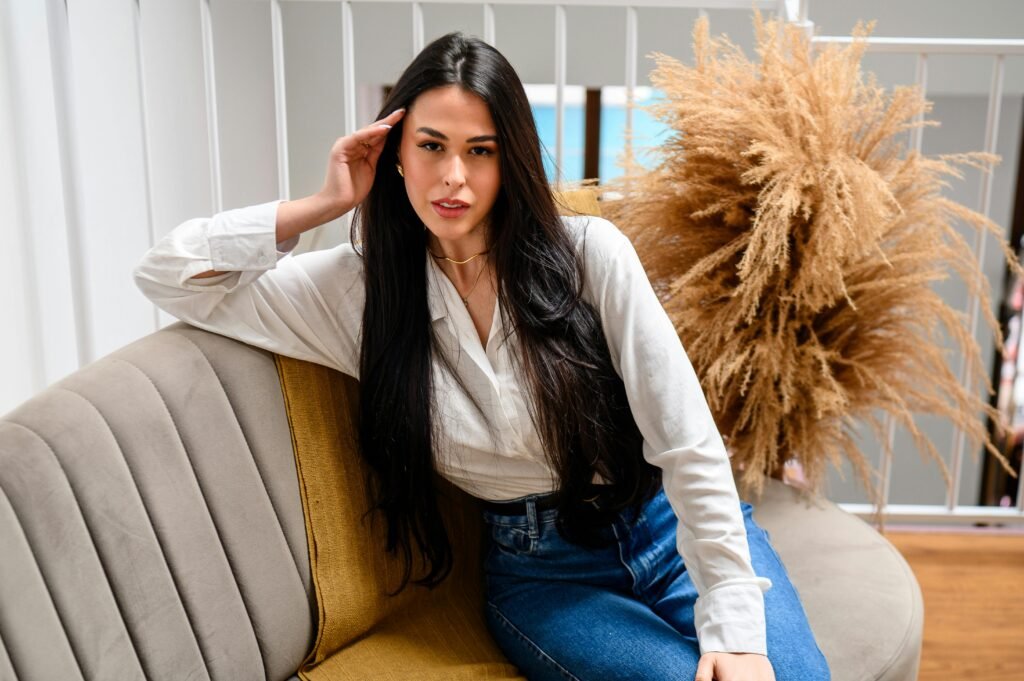Discover Studios, Services & More Across USA | StudioBDTLA
How to Brand Your Studio for Gen Z Clients

In the ever-changing creative industry, branding is more than a logo or tagline—it’s the complete identity of your studio. In 2025, one of the most influential client groups shaping the creative landscape is Gen Z. Born between the mid-1990s and early 2010s, Gen Z now makes up a huge portion of consumers and content creators, and they bring with them distinct values and expectations. For studios in Los Angeles or anywhere else, learning how to brand effectively for Gen Z isn’t optional—it’s essential.
Table of Contents
Why Gen Z Clients Are Different
Unlike previous generations, Gen Z has grown up fully immersed in digital culture. They are tech-savvy, socially conscious, and brand-aware in ways that make them both discerning and loyal. They value authenticity over perfection, inclusivity over exclusivity, and experiences over possessions.
What sets Gen Z apart is their ability to see through traditional marketing tactics. They crave transparency and prefer brands that communicate with them like peers rather than corporations. For studios, this means that a polished but impersonal brand identity won’t resonate. Instead, Gen Z wants a studio that reflects their lifestyle, values, and creative aspirations.
Understanding the Gen Z Aesthetic
Branding for Gen Z starts with visuals, but it goes deeper than style. This generation responds to aesthetics that feel fresh, bold, and real. Their preferences often include minimalist design with pops of color, nostalgic nods to early 2000s culture, and visuals that embrace diversity.
Your studio should invest in cohesive branding across digital and physical touchpoints. The logo, website, social media presence, and even the interior design of the space should align with a recognizable aesthetic. For example, neon signage, murals, and flexible modular setups inside the studio can create Instagram-worthy backdrops that appeal to Gen Z clients.

Storytelling as a Branding Tool
Gen Z doesn’t just buy products or services—they buy into stories. Your studio brand should highlight a narrative that resonates with their values. This could include your commitment to sustainability, your support of diverse creators, or your role in fostering local community projects.
Storytelling should be authentic and continuous. Social media platforms like TikTok and Instagram offer the perfect spaces to share behind-the-scenes moments, client testimonials, and the journey of your studio’s growth. This type of content fosters connection and positions your studio as more than just a service provider—it becomes a cultural space.
Prioritizing Inclusivity
Gen Z values inclusivity in all forms—gender, race, sexuality, and accessibility. Your studio brand should reflect this in practice, not just in marketing. For example, ensuring gender-neutral restrooms, representing diverse models in promotional content, and showcasing collaborations with underrepresented communities all signal to Gen Z that your studio is truly inclusive.
Inclusivity also extends to pricing. Many Gen Z clients are students or early-career creatives who may not have large budgets. Offering tiered packages, student discounts, or collaborative booking options can help position your studio as accessible without compromising on professionalism.
Sustainability as a Branding Priority
Environmental responsibility is non-negotiable for many Gen Z clients. Studios that embrace eco-friendly practices gain a strong competitive advantage. This could mean using energy-efficient lighting, incorporating recycled or sustainable materials in design, and reducing waste during production.
Your branding should make sustainability visible. Highlight your eco-conscious practices on your website, in client communications, and even in the studio itself with subtle design choices. A green brand identity appeals not just to Gen Z but also to a broader client base increasingly aware of environmental issues.
Digital Presence and Social Media Branding
Gen Z spends a significant portion of their lives online, so your digital presence is as important as your physical one. Social media platforms aren’t just marketing tools for this generation—they’re extensions of identity.
For branding, this means consistency and creativity. TikTok, Instagram Reels, and YouTube Shorts are where Gen Z consumes most of their visual content. Your studio should develop a strong content strategy that mixes educational tips (like lighting setups or creative inspiration), behind-the-scenes sneak peeks, and relatable humor.
It’s not about polished perfection; it’s about authenticity and relatability. Show your team, highlight client stories, and embrace trends while staying true to your studio’s identity. For Gen Z, real > staged.
Collaborations with Influencers and Creators
Gen Z trusts peers and micro-influencers more than traditional advertising. To strengthen your studio brand, consider collaborations with Gen Z creators who align with your values. Invite them for shoots, feature their work, or host events that spotlight their projects.
These collaborations serve dual purposes: they elevate your studio’s credibility within Gen Z circles and provide user-generated content that strengthens your branding. Plus, influencer partnerships often feel more authentic than scripted campaigns.

Experiential Branding
For Gen Z, branding isn’t only about what they see—it’s about what they experience. Your studio should feel like an environment where they belong. This could include interactive art installations, flexible setups for TikTok or YouTube creators, or lounges designed for networking and collaboration.
Hosting events—like workshops, mixers, or creative showcases—further enhances experiential branding. These events let clients connect with your brand on a personal level and spread word-of-mouth buzz that money can’t buy.
Tech Integration and Innovation
Gen Z expects seamless integration of technology in every aspect of their creative journey. Studios that embrace AI-driven tools, VR-ready setups, or live-streaming capabilities stand out to young clients who are often experimenting with cutting-edge content.
Even simple additions like QR codes for easy booking, digital check-ins, or online previews of studio layouts enhance your brand’s appeal. Positioning your studio as tech-forward ensures you align with Gen Z’s digital-first mindset.
Building Community Through Your Brand
For Gen Z, community matters just as much as individuality. They value brands that act as hubs where like-minded people can connect, collaborate, and grow.
Your studio branding should emphasize community building. This can include hosting LGBTQ+-friendly events, supporting local art showcases, or creating mentorship opportunities for student creators. By aligning with Gen Z’s desire for collective growth, your studio becomes more than a space—it becomes a movement.
Avoiding Performative Branding
One of the quickest ways to lose Gen Z clients is to engage in performative branding—saying the right things without following through. For example, claiming inclusivity without practicing it, or showcasing sustainability without measurable efforts, will quickly erode trust.
Authenticity must guide every decision. If your studio commits to sustainability, show receipts—like how much energy you save annually. If inclusivity is a core value, showcase real examples of how you support underrepresented creators. Gen Z respects transparency and accountability far more than empty slogans.
Measuring Success with Gen Z Branding
How do you know if your branding is resonating with Gen Z? Engagement is one of the clearest indicators. Track how your social content performs, whether clients return for repeat bookings, and how often your studio is tagged in user-generated content.
Feedback loops are also vital. Encourage clients to share their experiences openly, whether through surveys, reviews, or social comments. Use their feedback to refine your branding strategy continually.
The success of branding for Gen Z doesn’t lie in how polished it looks—it lies in how connected and authentic it feels.
Final Thoughts
Branding your studio for Gen Z clients requires a shift in mindset. It’s no longer about presenting a perfect facade—it’s about building a relatable, authentic, and inclusive identity that resonates with their values. From digital presence to experiential design, sustainability to inclusivity, every element of your branding should reflect the priorities of this powerful generation.
In Los Angeles and beyond, studios that adapt to Gen Z expectations will thrive, not only because they attract clients but because they build lasting communities. For Gen Z, a studio isn’t just a place to create content—it’s an extension of their own identity. By branding with authenticity, inclusivity, and innovation at the core, your studio can become the go-to space for the next wave of creators shaping the future of art, media, and culture.
